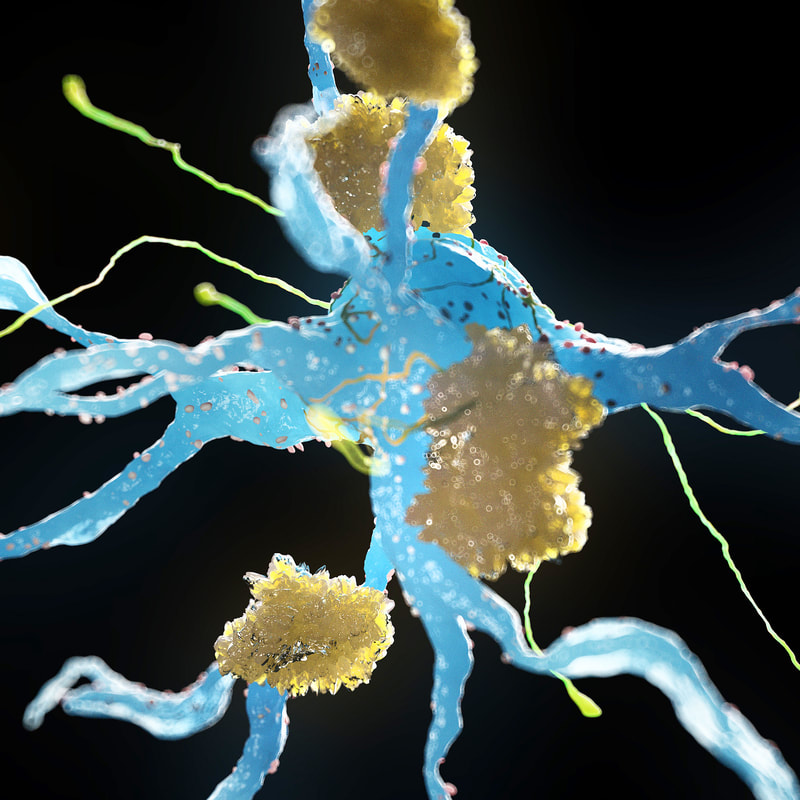Although the function of alpha-synuclein is not well understood, studies suggest that it plays an important role in maintaining an adequate supply of synaptic vesicles in presynaptic terminals. It may also help regulate the release of dopamine, a neurotransmitter that is critical for controlling the start and stop of voluntary and involuntary movements. Alpha-synuclein may also play a role in the movement of structures called microtubules that help cells maintain their shape.1
We know that genes are one part of the story, but the even more telling piece is epigenetics. Environmental factors influence gene expression so it is one thing to “carry the gene,” but the most important points we have to consider are the environmental risk factors that help trigger or turn on the genes we carry through life. What recently has especially come to light is that once started, these neurodegenerative diseases may propagate themselves; misfolding leads to a domino effect as more and more proteins become misfolded and are incorporated into a large, ever-growing abnormal clump of material in the brain. This process is similar to what we know has happened before with prion diseases (e.g. mad cow disease, Kuru, combined immunodeficiency disease), which are considered very rare. However, in recent years, scientists have discovered that similar processes of protein misfolding are at work in many neurodegenerative disorders including Alzheimer’s, Parkinson’s and Lou Gehrig’s disease. Prion refers to abnormal, pathogenic agents that are transmissible and are able to induce abnormal folding of specific normal cellular proteins called prion proteins that are found most abundantly in the brain.2 Research has shown as well beyond a shadow of doubt that Alzheimer’s is a prion disease where the amyloid and tau can also “self-propagate.”3 In integrative medicine, we must look to all factors of disease initiation to best understand its likely progression in order to identify the most appropriate treatment protocols. Alpha-synuclein is clearly a factor in neurodegenerative disorders and the more we can learn about its actions will hopefully provide us with the insight to diagnose more patients at an earlier stage. 1 U.S. Library of Medicine – The SNCA gene https://ghr.nlm.nih.gov/gene/SNCA 2 Centers for Disease Control and Prevention – Prion diseases https://www.cdc.gov/prions/index.html 3 University of California San Francisco – Alzheimer’s disease and prions https://www.ucsf.edu/news/2019/05/414326/alzheimers-disease-double-prion-disorder-study-show
0 Comments
Your comment will be posted after it is approved.
Leave a Reply. |
Authorby Suzanne Gazda M.D. Archives
August 2021
Categories |

 RSS Feed
RSS Feed